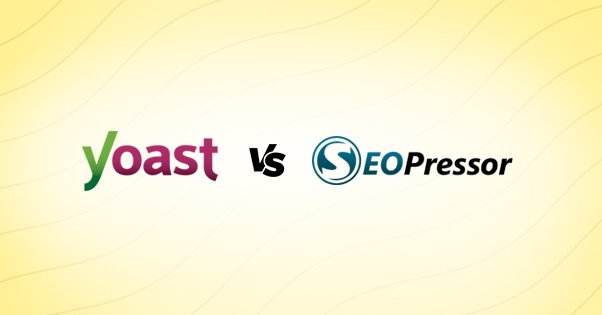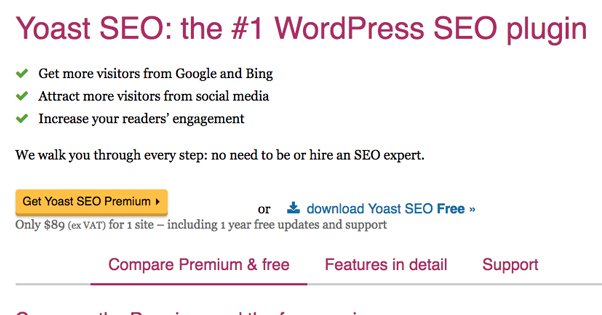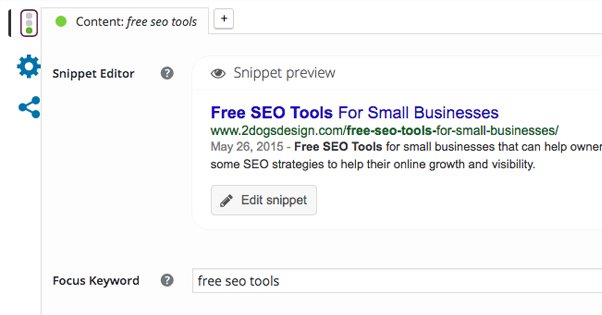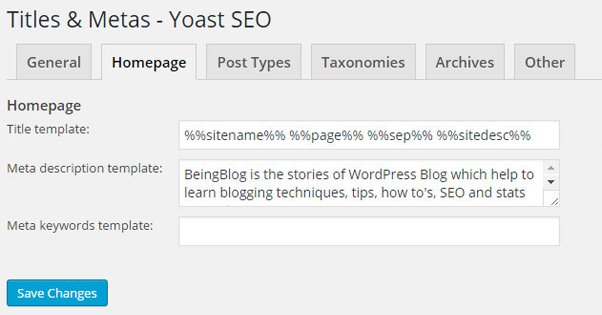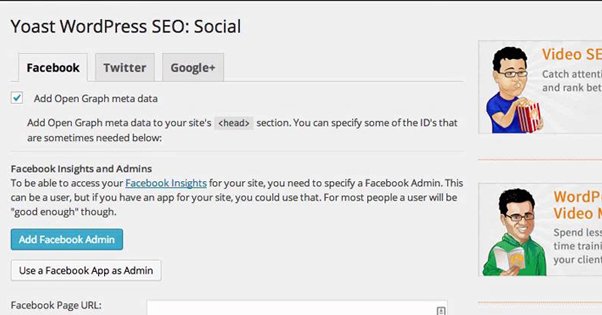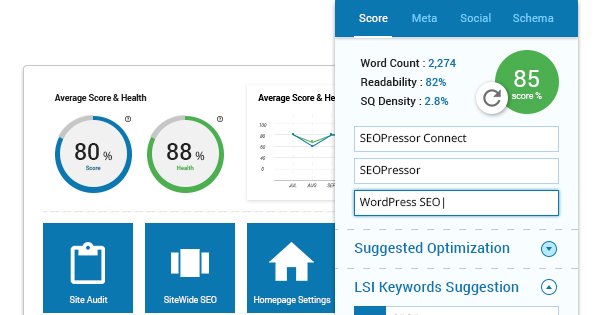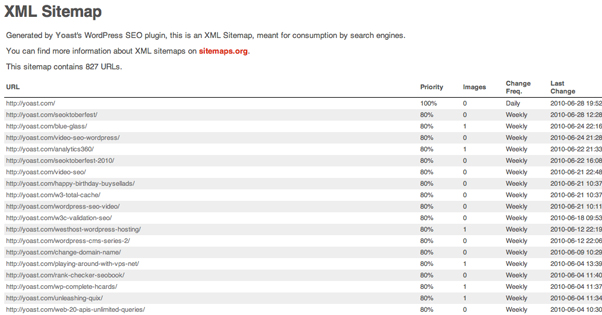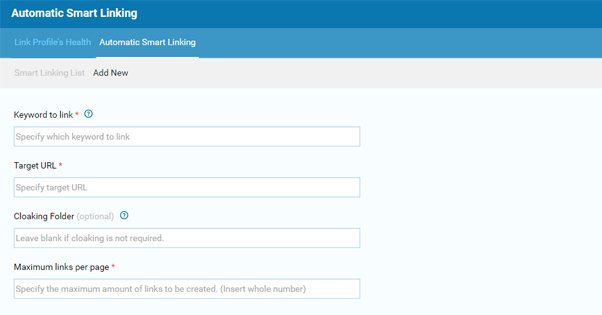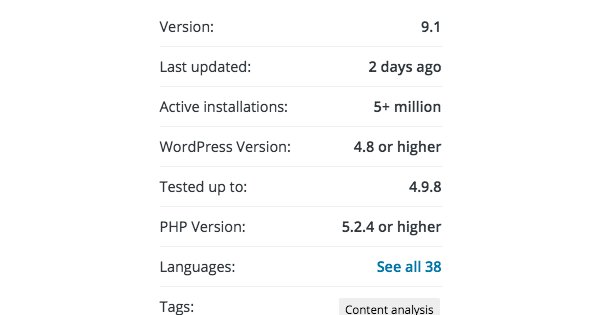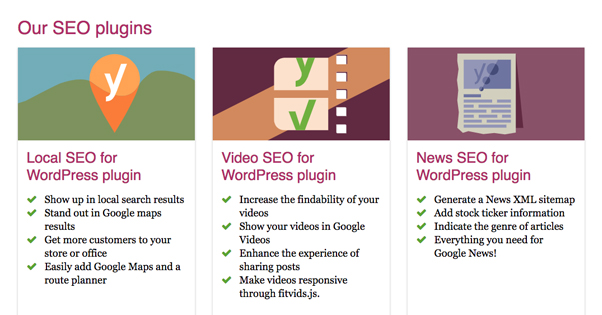Yoast vs SEOPressor: Which is The Better Blog SEO Plugin?
Published by Kenny Novak • Search Engine Optimization • Posted November 7, 2018 ContentPowered.com
ContentPowered.com
In the world of WordPress SEO, there are a handful of plugins that come up in discussion time and time and time again. WordPress SEO by Yoast. SEOPressor Connect. All in One SEO Pack. Today, I’m going to talk about the first two, Yoast and SEOPressor. Which is the better SEO Plugin for a WordPress site? Read on to find out.
Pricing
Before we dig into the feature lists, I’m going to be up-front with the pricing. The primary reason for that is actually to date this post. Most other comparisons of these two plugins are out of date and are comparing an old expensive version of SEOPressor to the free version of Yoast. Since the time those posts were written, SEOPressor has changed their purchase model and Yoast has added a paid premium version over top of their normal free version.
SEOPressor Pricing: $9 per month, ongoing. Back when SEOPressor was just SEOPressor, they had a $50 price tag as a one-time fee. Some time back, however, they pushed a major update, rebranded to SEOPressor Connect, and changed to a subscription model.
There is only one version of SEOPressor, and that’s it. There’s no free option, but the price is a lot lower for an initial buy-in than was previously considered. Of course, after six months of subscription, you’re spending more on SEOPressor Connect than you would have with the old version, but that’s not really a relevant comparison. There’s no available one-time pricing option. You have one option if you want to use SEOPressor.
Yoast Pricing: Free or $89. Yoast has a free SEO plugin, which is why it’s one of the most commonly chosen SEO plugins for WordPress sites. They also finally created a less limited, expanded version of their plugin called Yoast SEO Premium, which costs a flat, one-time fee of $89.
That’s right: the Premium version of Yoast is almost double what the old buy-in for SEOPressor was, and a lot of site owners balked at that previous pricing. You can consider the Yoast Premium version to be a high-powered upgrade if you already really like Yoast.
One possible drawback is that Yoast’s free version includes ads in your dashboard. They don’t try to monetize your content, but they will try to push upsells and related affiliate products on you when you use them. It’s not too difficult to ignore, but it can be annoying to some people.
Feature Comparisons
Now let’s get into the meat of the issue: features. I’m going to go down each major feature and compare each of the three plugins. I’ll use some abbreviations to save space: YSF for Yoast’s Free version, YSP for Yoast’s Premium version, and SEOP for SEOPressor.
Domain Usage
First up, let’s talk about usage. When you’re paying for a plugin, are you paying for an unlimited license, or are you licensing it to use on one site, or a limited number of sites?
Yoast Free is, of course, free. This means it’s unlimited for use on as many domains as you want, no matter how many sites you own. Yoast Premium, meanwhile, is a single-site license. They offer a bit of a scaling discount for multiple sites, but it’s not huge. If you want to use YSP on two sites, you’re paying nearly $170. If you want to add a third, that bumps up to $255. It’s one-time fees, but they can add up if you have numerous sites. SEOP, meanwhile, is unlimited domains for the same fee. You can use the plugin on as many domains as you want.
Points go to the free Yoast and SEOPressor for this one. Yoast Pro, what are you doing? That’s a bit too expensive for those of us who run numerous sites.
Keyword Optimization
It wouldn’t be an SEO plugin without keyword optimization and analysis features, right? So how do each of these plugins stack up?
YSF will analyze your page for a single keyword. They basically let you specify a target keyword, and then analyze your content to see how well you’ve utilized that keyword. YSP, meanwhile, will add in the ability to analyze and optimize every page for the primary keyword and related keywords, as determined by Google autofills, internal databases, and synonyms. SEOP, meanwhile, analyzes your content for multiple keywords, even of those keywords are dramatically different. You can specify several, and it will tell you if you’ve over- or under-optimized for any of those keywords.
Gonna be honest here, point to SEOP for that one. Yoast’s analysis isn’t nearly as detailed or as flexible.
Meta Settings
Every SEO plugin is going to have all of the basic meta settings available to change. You can set your meta title, meta description, keywords (if you want to let Google know you don’t know what you’re doing, use the meta keywords field) and so on. None of these plugins would be up for contention if they didn’t do this much. All three plugins also handle canonicalization, to avoid duplicate content issues stemming from site searches and other dynamic content.
YSP and YSF have a few additional meta features you might find useful. You can set a primary category and full taxonomy for breadcrumbs for your posts. It’s an added robust element of breadcrumbs that goes beyond what WordPress allows by default.
SEOPressor adds in a few additional features as well. Primarily, they have integration with Schema.org and the Rich Schema markup. Usually you need another plugin to handle that, so it’s handy it’s available for those sites that need it. They also support the competing Dublin Core markup, which is much less common but still nice to see.
Social Media Integration
None of the three plugins have straight-up social sharing buttons or other advanced social media integration. All three of them will also show you a preview of how your page will appear in Google’s search results.
Yoast Premium adds in the ability to preview how your page will appear as a link on both Twitter and Facebook, using whatever you’ve specified under the Open Graph and Twitter Card elements.
SEOPressor adds in the ability to automatically and dynamically adjust how your site appears via the preview, which is quite a nice feature.
Content Analysis
Content analysis is a very complex topic, so it would make sense if any of these plugins skimped on it. It’s tricky enough to analyze a piece of writing, but to have a computer do it, and do it accurately? That’s impressive. How do the three stack up?
YSF is understandably limited in its features. It has a readability check based on the Flesch Reading Ease score, which basically analyzes how many big, complicated words you’re using.
YSP adds in a couple additional options. One is a content analysis that identifies the five most common phrases you use on your page. You can check if these are annoying turns of phrase you overuse, or if they’re somehow antagonistic to your keyword choice, which might lead to changing a few of them.
SEOP takes things a few steps further. They have latent semantic indexing, which is an emulated version of how Google identifies similar phrases and keywords without needing to use a specific keyword phrase. It’s a great way to spice up your keyword optimization without overusing a single long-tail phrase. Additionally, they have a proprietary engine they call SemantiQ, for further semantic analysis.
Points to SEOPressor for this one, those are some pretty advanced features.
Technical Details
The ability to adjust technical elements of your page can be very important. There are a number of items I’ll cover here, some of which are more important than others. I already mentioned canonicalization, as one example.
All three plugins cover basics like your robots.txt file, your .htaccess file, and your permalink structure. They also all will generate XML sitemaps which can be submitted to Google for fast indexing and full site coverage.
Both YSP and SEOP include management for 301 redirects, which is very useful to avoid 404 pages on removed or moved content. Unfortunately, YSF doesn’t cover this. It’s not a huge deal unless you’re managing a lot of content and have to specify a lot of redirects manually, in which case the free Yoast loses out. I’ll call this one a draw.
Linking
Link management can be pretty important, for both internal and external links. You want to avoid linking to bad sites, you want to properly manage your follow/nofollow attributes, and you want to include plenty of internal links.
Yoast does not have much beyond the basic WordPress ability to nofollow links. SEOPressor allows full nofollow management, but that’s not really an advanced feature. Internal linking is where these plugins really vary up.
Yoast’s free version does not include any additional features for internal links. That’s not to say you’re somehow restricted from linking internally, Yoast Free just doesn’t care about it. They won’t analyze it or include recommendations.
Speaking of, Yoast Premium does include recommendations. Yoast builds an index of your site content and the keywords that content focuses on. Then, as you write, it will use keyword indexing to identify opportunities to include an internal link. For example, this section would trigger me to link to another page like this post.
SEOPressor includes “smart linking” and a smart link manager. The smart link manager helps you audit all links on your site, which usually you would need a search crawler or something like BrokenLinkChecker to find. It helps you, well, find redirecting and broken links that you may want to replace with others. Additionally, taking things one step beyond Yoast’s link recommendations, SEOP can automatically link keywords to other internal, relevant content based on their semantic indexation of your site.
Now, I haven’t used this extensively, so I can’t tell you how robust or how configurable it is. If anyone has experience with it, good or bad, let me know in the comments how it worked out for you.
Update Frequency and Support
Support is very useful for cases where a plugin breaks, an update fails, or you simply have a configuration question. How available is support, and how often do these plugins update?
Yoast Free again falls a little flat here. They have a pretty huge FAQ and a very good SEO blog that includes Yoast-specific instructions, and they have a good knowledge base. Unfortunately, you’ll have to rely on self-help or help from the community with your issues. They don’t offer support for the free version of the plugin.
That said, Yoast Premium includes support around the clock via email. Their support is quite good and very responsive, but it’s also a bit limited in that you only get one year of support for your license. If you want support beyond that, Yoast is pretty likely to try to sell you on a refreshed license.
As far as updates are concerned, both versions of Yoast update on a bi-weekly schedule, that is, once every two weeks. This helps keep ahead of Google algorithm changes, while ensuring bugs are fixed in a reasonable time-frame. Critical updates may be pushed outside of schedule.
SEOPressor updates fairly frequently, but not on a regular schedule, only when they have some reason to update. They’re responsive to Google changes, but they don’t push updates quite as often as Yoast. For the more hands-off admins, this can be beneficial. You do get priority email support for as long as you’re paying for the plugin, and lifetime updates again as long as you pay. Nothing really surprising there.
Additional Tools
SEOPressor has a lot of third party integrations, but since those aren’t built-in, I’m not going to cover them. As for their built-in tools, they have their own SEO Score monitor, a Local SEO expansion and SEO Health Monitor, and not a lot else.
Yoast, meanwhile, has additional plugins for additional value. They have plugins for Local SEO, Video SEO, News SEO, WooCommerce SEO, and Local SEO for WooCommerce. Unfortunately, these are all expensive, with prices ranging from $50 to $130 depending on the plugin.
Verdict
You can, of course, read all of the above and make your choice. Here’s my opinion.
If you’re a webmaster with a very limited budget, or you’re sticking to free tools only, Yoast’s free version is the only option. It’s serviceable, but not outstanding.
If you have a small budget on an ongoing basis, SEOPressor is by far the best option. Even when you consider how costs rack up for ongoing fees, the additional features and benefits you get from SEOPressor are invaluable.
Yoast’s Premium plugin is, unfortunately, just too expensive for too little additional benefit for me to wholly recommend.
